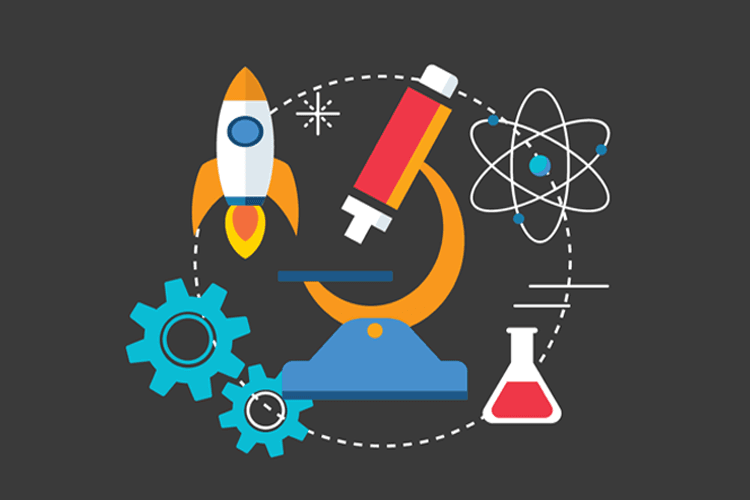4 popular subjects in school
Choosing the best subject in school is a significant decision that can shape a student’s academic journey and future career. Different subjects offer unique opportunities to develop various skills and interests. Whether you have a passion for the sciences, a love for the arts, an aptitude for mathematics, or an interest in social studies, each subject area provides valuable knowledge and experiences. Understanding the strengths and offerings of each subject can help students make informed choices that align with their talents and aspirations. Here, we explore four popular school subjects, highlighting their key features and benefits.
1Science
0 votes

Science is an exciting and dynamic subject that encourages curiosity and exploration. It encompasses various disciplines, including biology, chemistry, physics, and earth science, each offering unique insights into the natural world. Biology focuses on the study of living organisms, their structures, functions, and interactions. Chemistry explores the composition, properties, and transformations of matter, revealing the underlying principles of reactions and compounds. Physics examines the fundamental laws governing the universe, from the smallest particles to the largest galaxies. Earth science investigates the physical aspects of our planet, including geology, meteorology, and environmental science. Studying science develops critical thinking, experimental skills, and a deeper understanding of the world around us. It promotes a scientific approach to problem-solving and encourages students to ask questions, conduct experiments, and analyze results. Science education lays the groundwork for careers in healthcare, engineering, research, and environmental management, among others. It also fosters an appreciation for the complexities and wonders of the natural world, inspiring future generations of innovators and explorers.
0
Do you agree? 0% of people agree with your point of view!
2English Literature
0 votes

English Literature is a subject that delves into the rich and diverse world of written works, from classic novels and plays to contemporary poetry and short stories. Studying literature develops critical thinking, analytical skills, and a deep appreciation for the art of storytelling. It allows students to explore different cultures, time periods, and human experiences through the lens of literary works. Analyzing texts helps students understand complex themes, character motivations, and narrative structures. It also enhances vocabulary, writing skills, and the ability to articulate ideas clearly and persuasively. English Literature encourages students to think creatively and engage with different perspectives, fostering empathy and cultural awareness. Through the study of literature, students learn to appreciate the power of language and its ability to convey profound truths and evoke strong emotions. Literature classes often involve discussions, essays, and projects that challenge students to think deeply and express their interpretations effectively. This subject is invaluable for those interested in careers in writing, teaching, publishing, and the arts. It also enriches personal growth by opening doors to new worlds and ideas through the written word.
0
Do you agree? 0% of people agree with your point of view!
3Mathematics
0 votes

Mathematics is a fundamental subject that develops critical thinking and problem-solving skills. It provides the foundation for many fields, including engineering, physics, economics, and computer science. In school, mathematics covers a broad range of topics such as algebra, geometry, calculus, and statistics. Each area of math offers unique challenges and opportunities to develop analytical skills. Algebra introduces students to the concept of variables and equations, while geometry focuses on the properties and relations of shapes and spaces. Calculus delves into the study of change and motion, providing tools for understanding complex systems. Statistics teaches students how to collect, analyze, and interpret data, which is crucial in a data-driven world. The study of mathematics enhances logical reasoning, precision, and the ability to think abstractly. It also fosters a sense of achievement and confidence as students solve increasingly complex problems. Whether pursuing a career in STEM fields or simply wanting to improve everyday decision-making skills, mathematics offers a valuable and rewarding academic experience.
0
Do you agree? 0% of people agree with your point of view!
4History
0 votes

History is a subject that provides a comprehensive understanding of past events, cultures, and societies. It helps students develop a sense of context and perspective, enabling them to better understand the present and anticipate the future. The study of history involves analyzing primary sources, interpreting evidence, and understanding the causes and effects of historical events. It covers a wide range of topics, from ancient civilizations to modern history, including political, social, economic, and cultural developments. Learning about history fosters critical thinking, research skills, and the ability to construct well-supported arguments. It also encourages empathy and a broader understanding of different cultures and perspectives. By studying history, students gain insights into the successes and failures of the past, learning valuable lessons that can be applied to contemporary issues. History education prepares students for careers in education, law, public policy, and many other fields. It also cultivates informed and engaged citizens who appreciate the importance of historical knowledge in shaping our world.
0
Do you agree? 0% of people agree with your point of view!








Recent Comments